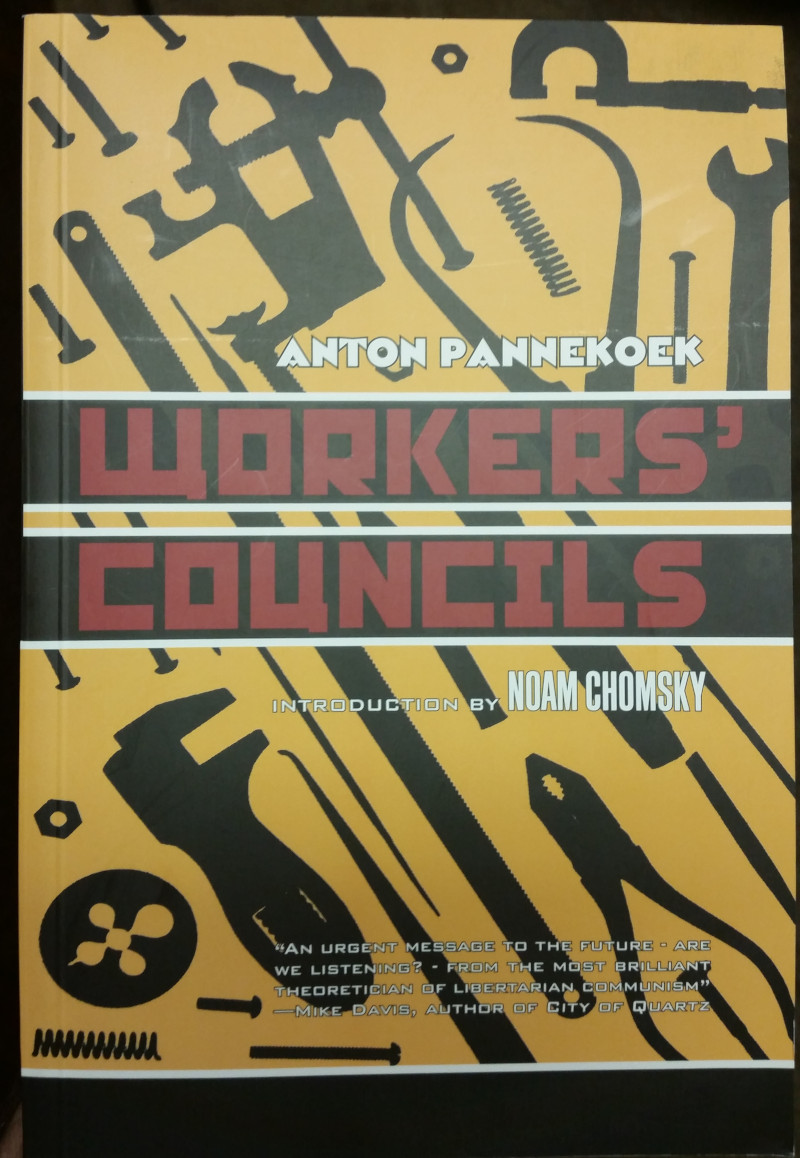
Noted recall: The goal is to describe, in just a few words, what the article is about. Additionally, if I think the article is particularly note-worthy (good or bad), I will comment on that. Compare this to a small sticky note, something to jog your memory about the contents of an article. Of course, if I miss the point of an article, or fail to find anything remarkable, that is entirely the fault of the reviewer.

Title: Worker's Councils
Author: Anton Pannekoek
Published: 2003, AK Press, 219 pages
ISBN: 1-902593-56-1
This book is about labor organization and unions, historical analysis, and a suggestion on what the future should look like. It was originally written before and during World War II and first published in 1948. This is a reprinting with some opening interviews and a few minor editorial clarifications.
This is a straightforward book, in that it is easy to read. There's not a lot of technical jargon, and discussion never becomes too abstract -- I sometimes find myself getting lost during technical economic discussions and that didn't really happen here. Each chapter is focused on a particular subject, but he did seem to meander a bit during some of these; each chapter is rather short, but some of these could have been shorter.
The opening interview with Noam Chomsky is worth reading by itself. He gives the book some context, and provides some criticisms. For instance, he thinks Pannekoek was overly harsh in his criticism of existing unions, as we can see from our historic perspective these were strong drivers of change at the time. But he also has his own thoughts on labor and trade, such as his long answer discussing globalization, that's worth reading.
The book is divided into five sections, each with a number of chapters. Just a few thoughts on each section overall.
1. The Task. Background and terms; capital and capitalism; the working class. Law, it's history and background, particularly the evolution of property rights as capitalism came to prominence during the industrial revolution. Social organization. The "Objections" chapter had some good material, the part on "the deep aversion of the workers against their daily labor;" discussion on class. Difficulties in organizing. Proposal for a different kind of labor organization, the workers' council; and plans for a future society.
2. The Fight. Trade unions, and criticisms of how capitalism undermines their effectiveness. Strikes, and shop sit ins. Political strikes. The Russion Revolution. I get the feeling that the last chapter of this section is the reason this book was written; he outlines an approach for the working class to bring about the society of workers' councils he detailed in the last section.
3. The For. This was my favorite section, especially the chapters on democracy, nationalism, and fascism. He discusses capitalism and labor in England, France, Germany, and America, and how each is different. These differences between countries are carried into other chapters in this section. Nationalism and capitalism; race and racism. The American frontier and how that shaped labor. Democracy; this chapter isn't really critical of democracy, but critical of how capitalism and corporate forces undermine democracy. Fascism; as the capitalist response against socialism. National socialism and German history; capitalism as nationalism; race and racism. This last chapter is kind of a historical analysis tying the previous chapters together
4. The War. Japanese imperialism; the rise of China. Colonialism. Russia, and state capitalism.
5. The Peace. Rebuilding after the war, and labor rights. Warnings about capitalism. A look at the future.